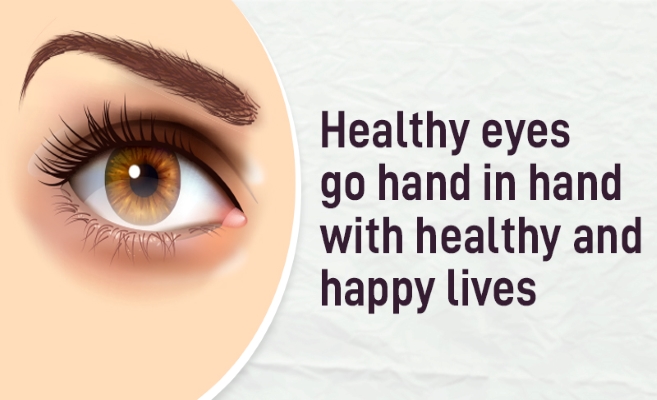Healthy Eyes go Hand in Hand with Healthy and Happy Lives – PSRI

Our eyes are how we see the world. We treasure the memories, the moments we have seen.
In this age of ‘Selfie”, Dr Minal Kaur, Consultant Ophthalmologist at Pusphawati Singhania Research Institute and Hospital, shares with us how to ensure good eyesight lasts us our lifetime so that we can click awesome photos and continue seeing them clearly until our last breadth.
- Maintain healthy habits.
Ours eyes are the reflection our overall well being. We are a result of what we eat, drink, do and think.
Ensure you take a ‘colorful’ diet. Fruits and vegetable in colors of yellow, orange, green are especially rich in phytonutrients like carotenoids and antioxidants which can maintain good health. These include lemons, oranges, papayas, apricots and green leafy vegetables.
Quit smoking or never start. Do not accept smoking in ‘No smoking’ zones. Say NO to passive smoking or atleast ensure good ventilation that room.
Alcohol consumption should also be avoided or consumed in moderation with atleast 2 alcohol free days in a week.
Do strike a balance between activity and rest. Ensure you move get up from the chair and move every 1-2 hours, that you exercise daily. Simple eye exercises like moving your eyes back and forth horizontally, vertically, clockwise and anticlockwise and pencil pushups help maintain eye muscle balance and coordination.
- Give your eyes a break. Rest your eyes.
This is applicable to students and professionals alike, to usage of books and digital gadgets; for all sustained near work activities. Follow the famous “20-20-20” rule. After 20 minutes of work, look beyond a distance of 20 feet for 20 seconds. This relaxes the eye muscles and helps regain normal blink rate to rehydrate the ocular surface. These micro breaks will improve eye comfort and your efficacy. This can be augmented by palming. Simply rub your clean hands to warm them up and gently cup your eyes.
- Protect your eyes.
We live in a world of increasing pollution and ozone depletion. Cover your precious eyes with glasses or shades providing both UVA and UVB (ultraviolet radiation) protection when you step out in the sun. You may splash your eyes once or twice with clean drinking water to remove the dust and chemicals stuck on the ocular surface, but take care not to overdo it.
In case something falls into your eyes, DONOT rub your eyes. It will just make the foreign body stick to your eyes. Instead blink rapidly, the increased tear secretion and blinking will bring the particle to inner corner of the eye. You may also splash water into your eyes. If the irritation persists visit the nearest eye doctor to have it removed.
Do use protective eye and face gear that enclose or protect the eye area in order to prevent particulates, infectious fluids, or chemicals from striking the eyes. For example, when swimming, goggles protect the eyes from salt or chlorine in the water or during sports in sports like cycling to protect eyes from insects, dust and wind blast.
Special certified glasses should be worn when viewing sun, lasers or various welding & soldering activities.
- Regular eye checkups.
One of the essential yet often overlooked aspect of preventive health care. A routine eye examination can pick up signs of a number of eye and systemic disorders well before a patient experiences any symptoms such as glaucoma, age related macular degeneration and various retinal diseases. It is not unusual to see patients who have lost vision in one eye to be unaware of it.
It is not uncommon for patients to discover they have ‘lazy eye’ or even blind in one eye in an examination or accidentally when something falls in the better eye and they close it only to realize the other eye has poor or no vision. YES, it still happens.
A complete dilated eye examination should be done for all children as they enter school, teens, college, the 40s and 60s. These are the important milestones, and depending on the family and systemic history a checkup is essential every 1-4 years.
Very often it is the ocular findings which result in the diagnosis of a spectrum of systemic illness from lifestyle diseases like hypertension & diabetes; various auto-immune and connective tissue disorders like Rheumatic arthritis & sarcoidosis to infections like tuberculosis and syphilis or even HIV and tumours.
We all aspire to look our ‘Best’. Let’s also act to ‘See’ our best. Let’s be ‘Eye’ smart.

 Book An Appointment
Book An Appointment Virtual Consultation
Virtual Consultation





